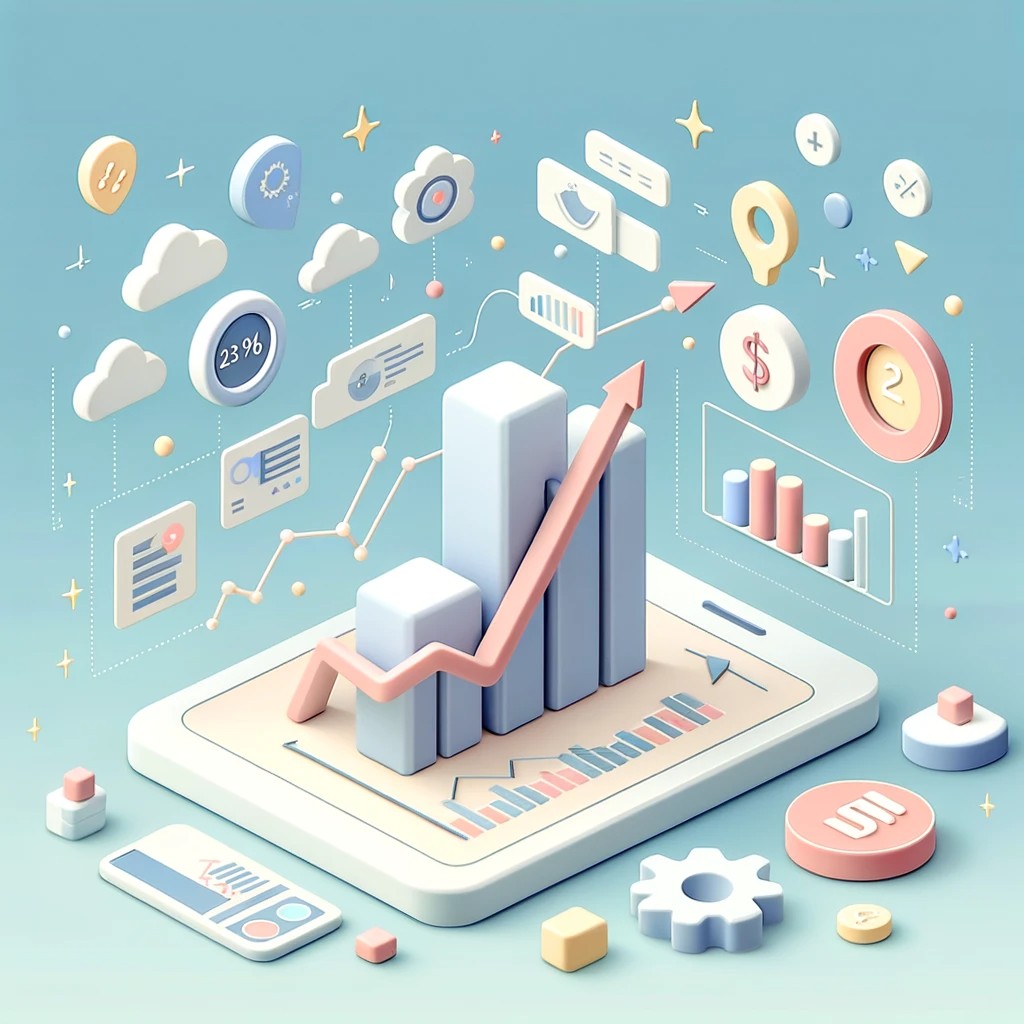
The Impact of Global Events on Lending Trends
The world has witnessed many significant events in the past few years that have affected the global economy and society in various ways. Some of these events include the COVID-19 pandemic, the rise of cryptocurrencies, and social movements for racial justice and environmental protection. How have these events influenced lending trends? In this article, we will explore some data and insights that can help us answer this question.
The COVID-19 pandemic has been one of the most disruptive and impactful events in recent history, affecting almost every aspect of human life and activity. The pandemic has also had a profound effect on the lending market since it forced governments worldwide to raise interest rates to fight inflation, making credit more expensive. For example, in the US, mortgage rates rose from around 3% to almost 8%.

As a consequence of these high rates, the United States Domestic Credit growth decelerated and finally shrunk by 0.6% year-over-year in December 2022, compared with an increase of 0.8% year-over-year in the previous quarter.

Source: https://www.ceicdata.com/en/indicator/united-states/domestic-credit-growth
But despite the higher rate environment, the pandemic accelerated the digital transformation of the lending industry, as both borrowers and lenders shifted to online platforms and channels to access and provide credit. According to a survey by McKinsey, 73% of consumers adopted digital channels in the banking industry during the pandemic crisis.

As a result of this massive adoption, technologies like embedded finance grew exponentially. For example, VC funding increased 2.1x for embedded lending from 2020 to 2021.

Source: https://dealroom.co/blog/dealroom-talks-the-rise-of-embedded-finance
Another global event that impacted lending trends was the rise of cryptocurrencies. Cryptocurrencies have gained popularity among some investors and users who see them as an alternative or complementary asset class or payment method that offers advantages such as decentralization, transparency, anonymity, security, and low transaction costs. According to a report by Statista, the number of cryptocurrency users worldwide increased from 5 million in 2016 to 101 million in 2020 and 425 million in 2022.

Source: https://www.statista.com/statistics/1202503/global-cryptocurrency-user-base/
The rise of cryptocurrencies has also led to the emergence and growth of a new segment of the lending market, known as crypto lending or decentralized finance (DeFi). Crypto lending is a form of peer-to-peer lending that uses blockchain technology and smart contracts to facilitate the borrowing and lending of cryptocurrencies or other digital assets without intermediaries or centralized authorities. According to a report by Beincrypto.com, the total value locked (TVL) in DeFi protocols, which measures the amount of assets committed to the DeFi ecosystem, increased from $0.7 billion in 2019 to almost $180 billion in 2021. With the financial crisis of 2022, TVL was reduced to around $40 billion, but it will definitely grow again in the next bull run.

Source: https://beincrypto.com/defi-tvl-drops/
However, lending trends are not only about technology and interest rates. Social movements for racial justice and environmental protection were also significant events that affected the lending market, as they raised awareness and demand for more inclusive and sustainable lending practices and products. These social movements were triggered or amplified by various incidents and factors, such as the killing of George Floyd by a police officer in the US, the wildfires in Australia and California, the disproportionate impact of the COVID-19 pandemic on marginalized communities, and the growing evidence and urgency of climate change.
All these social movements have created new opportunities and incentives for lenders to innovate and differentiate their lending offerings and value propositions. According to a report by Deloitte, some of the emerging trends and developments in the lending market include:
- The rise of social impact lending, which is a form of lending that aims to generate positive social or environmental outcomes in addition to financial returns. Examples of social impact lending include microfinance, green bonds, social bonds, sustainability-linked loans, and blended finance.
- The adoption of diversity, equity, and inclusion (DEI) principles and practices in lending, which involve ensuring fair and equal access to credit and financial services for all segments of society, especially those that are historically underserved or discriminated against. Examples of DEI initiatives in lending include affirmative action policies, credit scoring models that account for alternative data sources, financial literacy programs, and community development financial institutions (CDFIs).
- The integration of environmental, social, and governance (ESG) criteria and standards in lending, which involve assessing and managing the ESG risks and opportunities associated with borrowers and their activities. Examples of ESG integration in lending include ESG due diligence processes, ESG reporting and disclosure requirements, ESG rating systems, and ESG-aligned incentives and penalties.
In conclusion, the global events that have occurred in the past few years have had a significant impact on lending trends across different regions and sectors. These events have also highlighted the importance and necessity of adapting and innovating in the lending market to cope with the changing needs and preferences of borrowers and lenders. As the world continues to face new challenges and opportunities in the future, the lending market will likely continue to evolve and transform accordingly.
Global lending trends, impact of geopolitics on lending, financial trends after global events, lending rates and global economy, lending market disruption, fintech response to global events, embedded lending growth, lending industry outlook, fintech lending solutions
#GlobalEvents #LendingTrends #FinanceInsights #COVID19Impact #CryptocurrencyTrends #FintechInnovation #SustainabilityInFinance #SocialImpactLending #DEIinFinance #ESGIntegration #FinancialInnovation #MarketDisruption #GeopoliticalImpact #FinancialTrends #FinanceIndustry #LendingMarket #FinancialTransformation #DigitalFinance #FinancialServices #FinancialFuture














































.png)





















































































































.png)


















.png)




